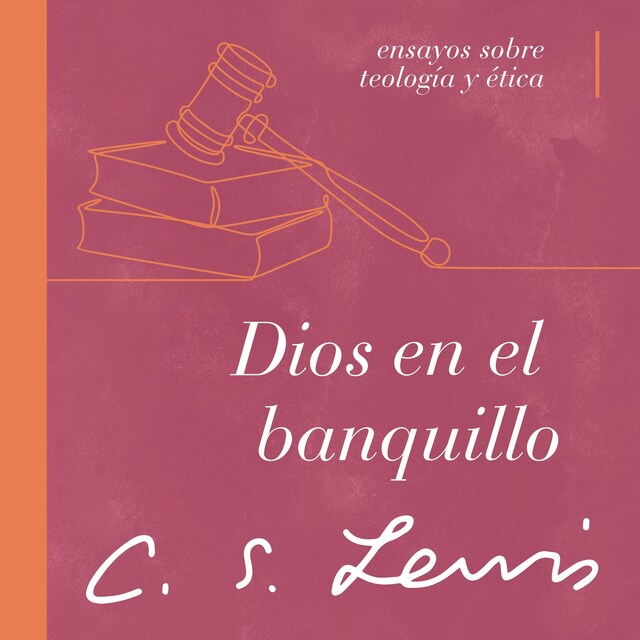
Dios en el banquillo
Ensayos sobre teología y ética
Description of the book
Un libro valiente, sutil y agudo sobre los milagros, la relación entre la ciencia y la fe, la redención o el destino final del hombre.
"Lewis me pareció el hombre más completamente convertido que he conocido", observa Walter Hooper en el prefacio de esta colección de ensayos de C. S. Lewis.
“Toda su visión de la vida era tal que lo natural y lo sobrenatural parecían inseparablemente combinados”. Es precisamente este cristianismo omnipresente el que se demuestra en los cuarenta y ocho ensayos que componen Dios en el banquillo. Aquí Lewis se dirige tanto a cuestiones teológicas como a las que Hooper denomina "semiteológicas" o éticas. Pero ya sea que esté discutiendo El mal y Dios, Milagros, La decadencia de la religión o La teoría humanitaria del castigo, su visión y observaciones son total y profundamente cristianas.
Extraídos de una variedad de fuentes, los ensayos fueron diseñados para satisfacer una variedad de necesidades y, entre otros logros, sirven para ilustrar los muchos ángulos diferentes desde los cuales podemos ver la religión cristiana. Van desde piezas relativamente populares escritas para periódicos hasta defensas más eruditas de la fe que aparecieron por primera vez en The Socratic Digest. Caracterizados por la honestidad y el realismo de Lewis, su perspicacia y convicción y, sobre todo, su total compromiso con el cristianismo, estos ensayos hacen de Dios en el banquillo un libro muy adecuado para nuestro tiempo.
God in the Dock
A brave, subtle, and sharp book about miracles, the science-faith relationship, redemption or man’s final destiny
”Lewis struck me as the most thoroughly converted man I ever met”, observes Walter Hooper in the preface to this collection of essays by C. S. Lewis.
“His whole vision of life was such that the natural and the supernatural seemed inseparably combined.” It is precisely this pervasive Christianity which is demonstrated in the forty-eight essays comprising God in the Dock. Here Lewis addresses himself both to theological questions and to those which Hooper terms “semi-theological,” or ethical. But whether he is discussing “Evil and God,” “Miracles,” “The Decline of Religion,” or “The Humanitarian Theory of Punishment,” his insight and observations are thoroughly and profoundly Christian.
Drawn from a variety of sources, the essays were designed to meet a variety of needs, and among other accomplishments they serve to illustrate the many different angles from which we can view the Christian religion. They range from relatively popular pieces written for newspapers to more learned defenses of the faith which first appeared in The Socratic Digest. Characterized by Lewis’s honesty and realism, his insight and conviction, and above all his thoroughgoing commitments to Christianity, these essays make God in the Dock very much a book for our time.
Categories:
Format:
Language:
Spanish


